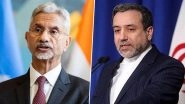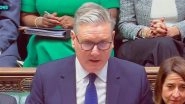New Delhi, Sep 11 (PTI) India on Wednesday said it will protect the interest of industry and ensure huge opportunities for exporters while getting into the proposed mega free trade agreement RCEP.
Commerce and Industry Minister Piyush Goyal said that India has invited representations from all 15 countries of RCEP bloc on September 14 and 15 here to discuss ideas related to the pact.
Regional Comprehensive Economic Partnership (RCEP) agreement is being negotiated between 16 countries including 10-nation grouping ASEAN and India, China, Japan, South Korea, Australia and New Zealand.
"As long as India's domestic industry and our national interest is protected, the faster it (RCEP pact) is done the better it is for India because the agreement which we will finalise, if we agree to finalise and join, will necessarily rest on the pillar of national interest and it will necessarily give adequate protection to indian industry, will necessarily ensure that it does not allow indiscriminate imports to come in and will necessarily provide huge opportunity for Indian exports and job creation," Goyal told reporters here.
He said that it is on these pillars, India is negotiating with the members of RCEP.
The minister added that while negotiating such a pact, one has to be keep negotiating and get the best which is in the national interest.
"...We are not like Ostrich that we will stand on one neck...you have to be nimble footed and keep negotiating," he added.
When asked about the concerns being raised by certain domestic industries on the presence of China in the RCEP group, Goyal said negotiations are going on and everybody has not opposed the pact.
"We are literally vertically split. We have half the industry saying please bring RCEP, and we (the industry) can increase exports dramatically and there is a section of industry which feels that, we should not have RCEP," he said.
Citing example, he said pharma industry has stated that they see good opportunity in Chinese market as China's pharma imports stood at about USD 25 billion and India's exports are only about USD 200 million.
However, he added that national interest cannot be hijacked by one or two sectors and it has to be seen in overall context.
"We will certainly balance those industries if any which feel there could be an unfair advantage to Chinese companies. We will ensure that whatever agreement is made, it will be win-win for India.
"... If I had to look up 100 per cent sectors, then no negotiations can ever be completed. So we will have to look at balance," he said.
India registered a trade deficit in 2018-19 with as many as 11 RCEP member countries - including China, South Korea and Australia - out of the grouping of 16 nations that are negotiating the mega trade pact since November 2012.
The RCEP bloc comprises 10 ASEAN group members (Brunei, Cambodia, Indonesia, Malaysia, Myanmar, Singapore, Thailand, the Philippines, Laos and Vietnam) and their six FTA partners - India, China, Japan, South Korea, Australia and New Zealand.
RCEP negotiations, which started in Cambodian capital Phnom Penh in November 2012, aims to cover goods, services, investments, economic and technical cooperation, competition and intellectual property rights.
Further talking about free trade agreements, Goyal said indian industry can use these pacts effectively and efficiently.
"My own sense is that we can also use FTAs extremely well for which the government is also looking at measures which we need to do domestically so that our Indian industry can be competitive and can use these FTAs well," he said.
He said that the ministry is going to held consultative meetings with industry to explain ways of using these agreements in their interest.
"I find many of our industries have not used the benefits of FTA, may be for lack of knowledge or lack of time or because they are sitting in the cosy comfort of protected domestic market," he said.
The minister also said that the proposed industrial policy is being reworked by the department for promotion of industry and internal trade.
Similarly, the ministry is still discussing with stake holders on the new foreign trade policy. PTI RR CS
(The above story is verified and authored by Press Trust of India (PTI) staff. PTI, India’s premier news agency, employs more than 400 journalists and 500 stringers to cover almost every district and small town in India.. The views appearing in the above post do not reflect the opinions of LatestLY)













 Quickly
Quickly


